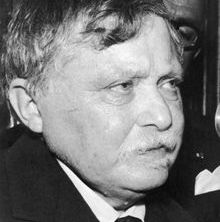Gabriel Marcel (1889-1973) was a French philosopher, theater critic, playwright, and musician. He converted to Catholicism in 1929, and his philosophy was later described as a Christian existentialism (e.g. in Jean-Paul Sartre’s Existentialism is a Humanism) – a label which he first accepted, but from which he subsequently distanced himself.
For Gabriel Marcel, humans are “available to one another”. We are beings that are sensitive to and disposed towards seeking and taking part in relationships.

According to Marcel, the human person is not secured, nor is it even close to being liberated, in a a society shaped by liberalism. Instead it is decidedly narrowed down and restricted. As persons, humans are not opposed to any “we,” but to the anonymous “one” (as in “one wonders why”). According to Marcel, the person can grow only by the perpetual relationalizing of one’s inherent individuality. One does not become relational by directing one´s attention towards oneself, but rather by making oneself available and thereby more transparent, more open, to oneself and to others. Only when humans are no longer “concerned with ourselves,” “full of ourselves,” are we enabled to receive and embrace another person.
“I become a presence to the Thou, and you become a presence to me. We become irreplaceable to each other,” as B.L. Knox puts it in his book about Marcel. In the same spirit, Marcel’s book Homo Viator, about the metaphysics of hope, declares: “I hope in Thee for us.”
In major works such as The Mystery of Being and Man Against Mass Society, Marcel is also interested in how to preserve the human person’s true being and fullness of life in a modern society governed by materialism and technology. In modern societies, the human opportunity “to be,”, is threatened by mechanisms of control that focus upon “producing” and “having.”
